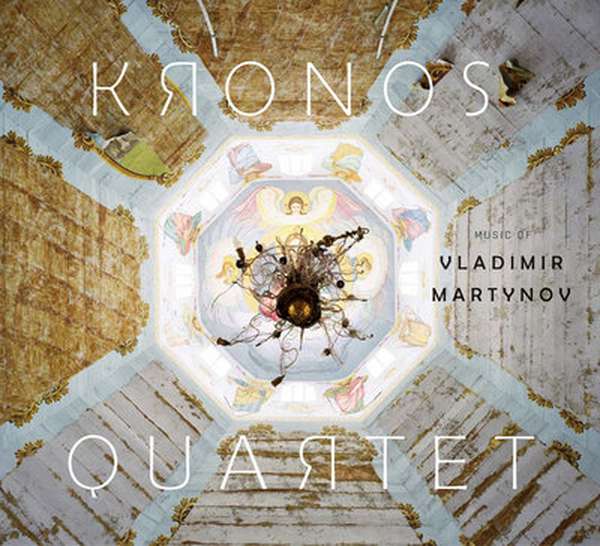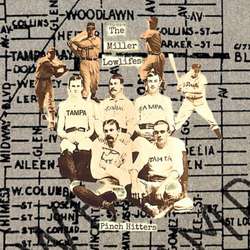Now, I'm no stranger to long music, but it still astounds me that there are only three pieces on this nearly 70-minute album. I suppose I should've expected nothing less from the prolific Kronos Quartet, who continue to astound with their virtuosity and stylistic diversity. I mean, these are the folks who have recorded pieces by composers like Terry Riley, covered artists like Sigur Rós, and even performed the soundtrack to Requiem for a Dream. Their latest release, Music of Vladimir Martynov, contains pieces commissioned from or arranged by, you guessed it, Russian composer Vladimir Martynov specifically for Kronos.
The first selection, The Beatitudes, is the shortest, most melodic, and most accessible. That's no surprise, given its origins; it was originally written by Martynov in 1998 as a choral work, and then rescored specifically for the Kronos Quartet in 2006. It's a nigh indescribably lovely piece, fillaed with sentimental swells and melodies that are inescapably sweet. Like most of the works on this album, it utilizes a lot of repetition, but given it's short length and intense melodicism of the piece, this is a detail that only the most uptight listeners will find to be an issue. It sounds almost folk-like in the composition of its melody--though it'd be a misnomer to call it Americana, it would sound right at home alongside works from Aaron Copland like Appalachian Spring.
The second and most recent piece, 2009's Schubert-Quintet (Unfinished), is likely the most difficult to listen to on the album, and it features former Kronos cellist Joan Jeanrenaud stepping in to round out the quintet. It's very, very repetitive, each movement repeating the same motif with only minor melodic variations for well over ten minutes for each. Don't get me wrong, there is a lot of development to the piece--the vast sforzando-driven dynamic variations and intense start/stop tempo and mood shifts carry the selection incredibly well, especially in the first movement. But, like most of the album, it takes immense focus to listen to without derailing.
The final selection is Der Abschied (translation: The Farewell), written in 2006 in remembrance of Martynov's father. Fittingly, the piece has a languid, dirge-like pace to it. Like the other selections, it utilizes repetition heavily, using the iterated measures to represent the last breaths of his dying father. It's an emotionally overwhelming piece, and at forty minutes long, it feels similar in expression and scope to Gustav Mahler's "Pan Awakes, Summer Marches In". It goes from weighty and thick to light and airy and swells back again, repetitive but never allowing for a moment's respite. The best moment, however, has to be the ending, and I don't mean that flippantly. Unless you're watching the timestamps, you won't hear it coming. You will only know it when you realize you've been sitting and listening intently to silence for two minutes, and incredibly satisfied with it, too.
This isn't an album for the faint of heart or weak of attention span. It's quite beautiful, but it takes a fair amount of patience to appreciate. If you could sit through the entirety of Mahler's Symphony No. 3, then you can definitely appreciate these selections. If you can't stand to listen to classical music written outside of the Baroque or Romantic periods, then you can probably skip this one.




